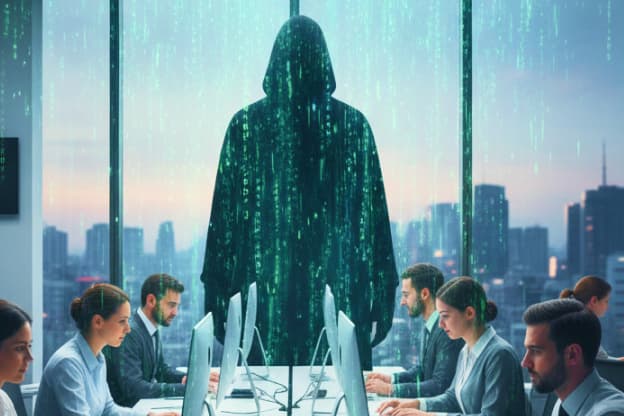Welcome to Bytes with Bec and Benji!


Explore the complicated world of cyber security as Bec and Benji delve into the trends in social engineering, phishing, artificial intelligence, and Open Source Intelligence (OSINT) to name a few.
- Hosts Bec and Benji, enthusiasts in cyber security, bring you a blend of expert insights and practical tips and tricks.
- Whether you’re a professional in the field or just beginning to peek into the digital abyss, Bec and Benji’s engaging discussions, packed with info, and a fantastic lineup of exceptional guests will ensure you stay ahead of cyber threats.
- Tune in to elevate your cyber skills and safeguard your digital experience—one intriguing byte at a time.
Sign up to subscribe to the podcast!

Bec is the Content Marketing Specialist at Phriendly Phishing. Bec is originally from Perth, and her background is both in front of and behind the cameras in film and television, SEO and project management. Now she’s all-in on cyber security, and holds a current ISC² certification and membership.
She has a keen interest in Open-Source-Intelligence (OSINT) and Digital Forensics Incident Response (DFIR).

Benji is an eLearning Instructional Designer for courses and simulated phishing emails at Phriendly Phishing.
His career background is primarily in Higher Education, cyber security and digital enablement and holds a current ISC² certification and membership.
He has a keen interest in foreign interference, Open-Source-Intelligence (OSINT), web vulnerabilities and generative AI technologies.

Avoid playing a guessing game when it comes to security awareness. It’s time to sync up your team with a training program designed to make your entire workforce ‘cyber-fit’. Through robust and engaging training, we can turn potential weak spots into solid cheerleaders of your security strategy.

Your people minus security naivety = stronger defences
To be most effective, a security awareness training process should focus on the risks that employees are most likely to encounter.
At Phriendly Phishing, we’ve done the hard work for you. From our years of experience, we’ve identified specific security habits that need to be addressed as part of a best-practice approach to raising your staff’s security awareness. Whether it’s the challenges of BYOD security or remote working, we’ve got you covered.
“Your business can be wherever your people are. With our help, security surety can be there too.”

Don’t let your organisation fall victim to avoidable cyber security pitfalls.
Equip your team with the necessary ‘cyber smarts’ to navigate the digital landscape confidently and securely. Request a demo of our comprehensive security awareness training platform today and take the first step towards fortifying your company’s digital defences.
Our experts are ready to show you how our platform can elevate your workforce to new levels of security awareness, and all with a zero touch set up.
Click the button below to schedule your demo, and let’s start your journey to a safer, more secure digital environment together
Check out examples from our resource library:

See how Phriendly Phishing clients of all shapes and sizes have used our training to better protect their businesses.

